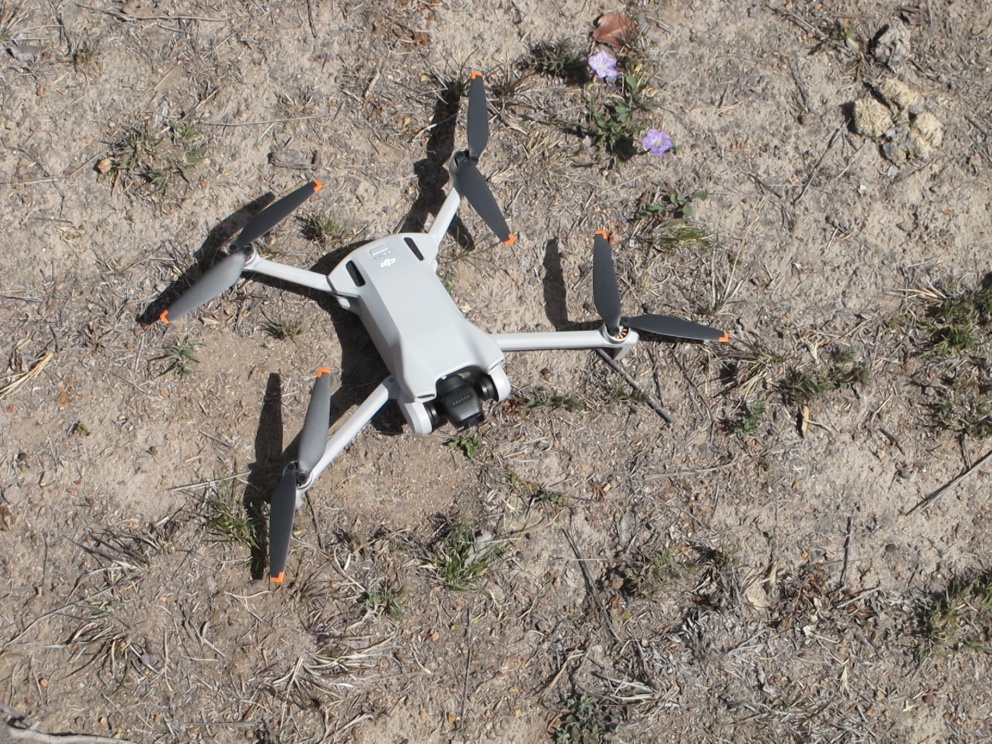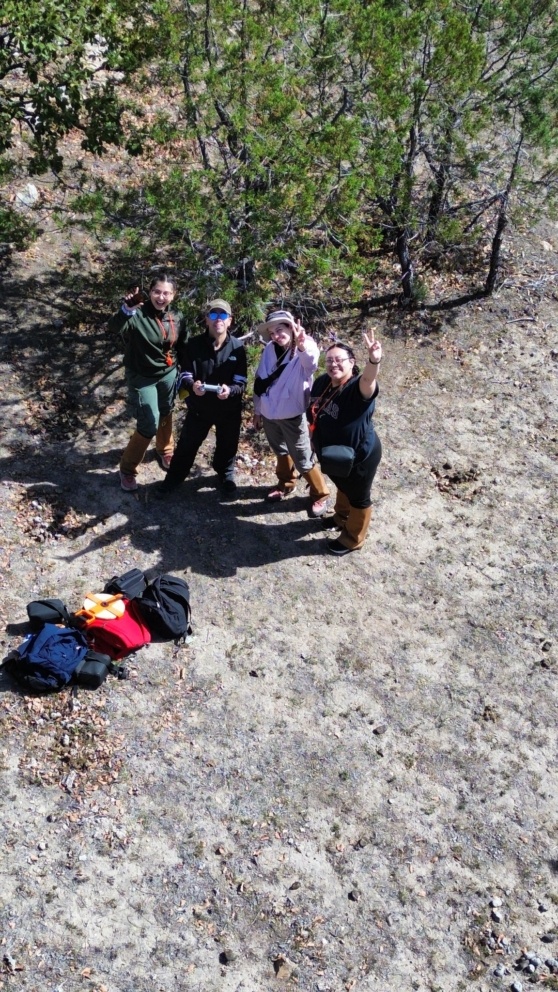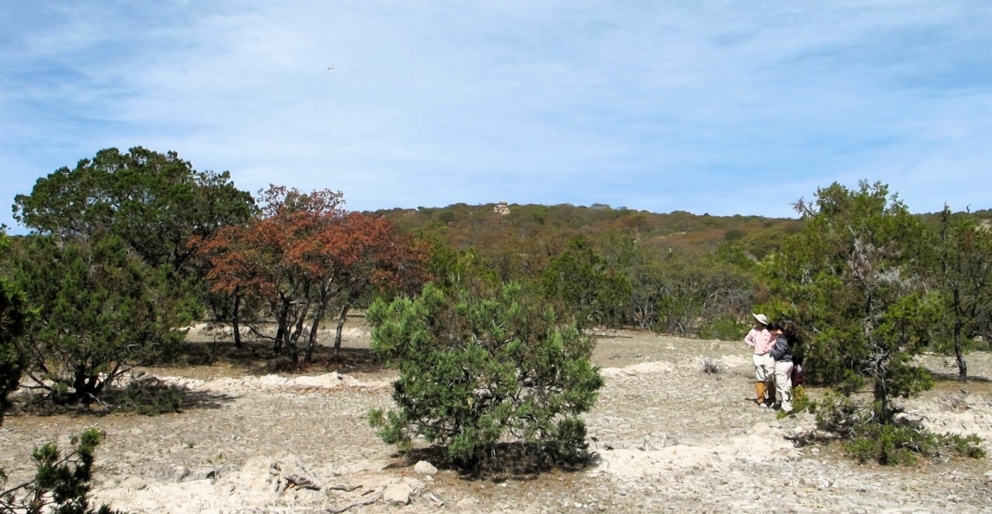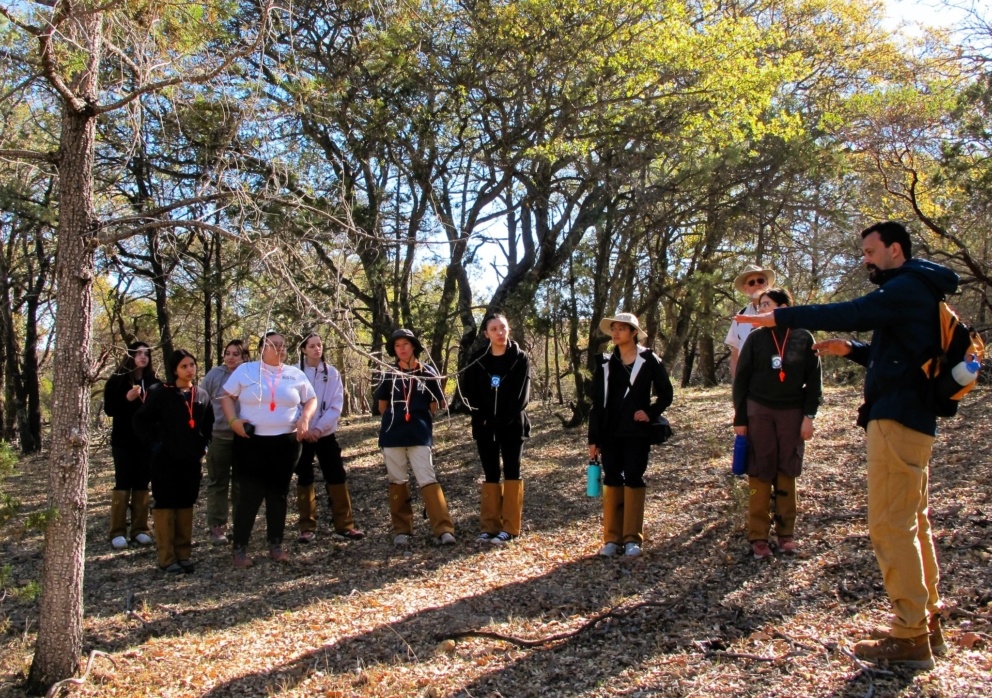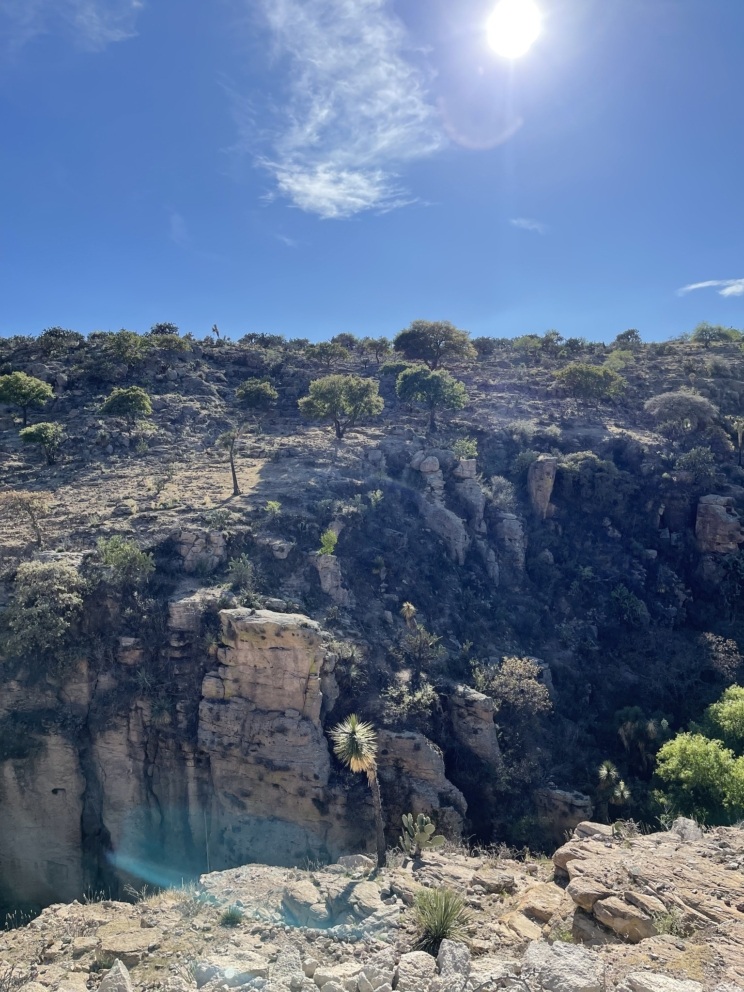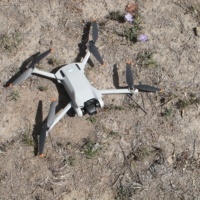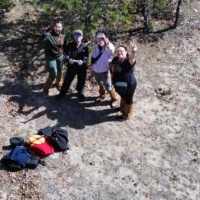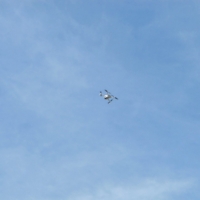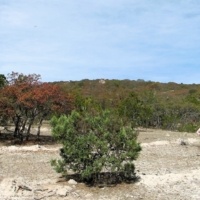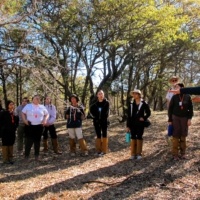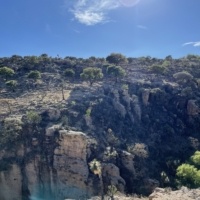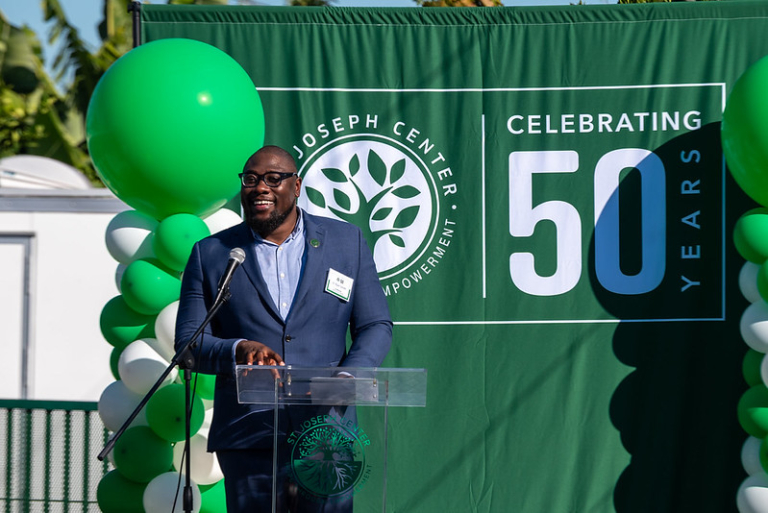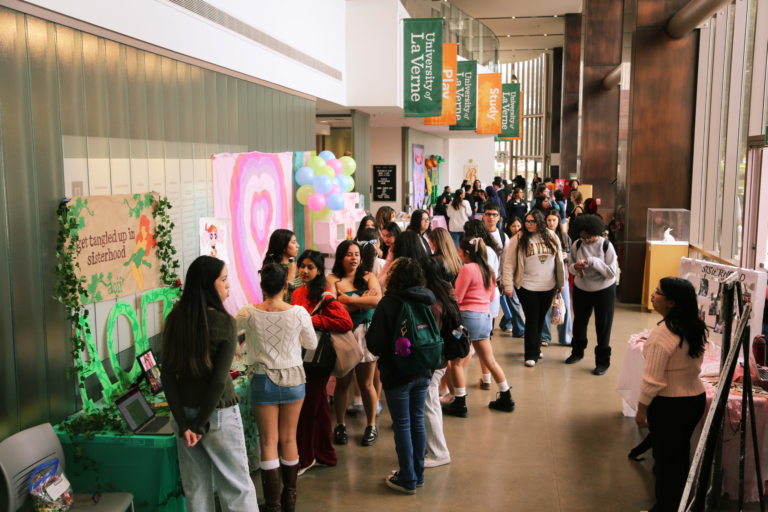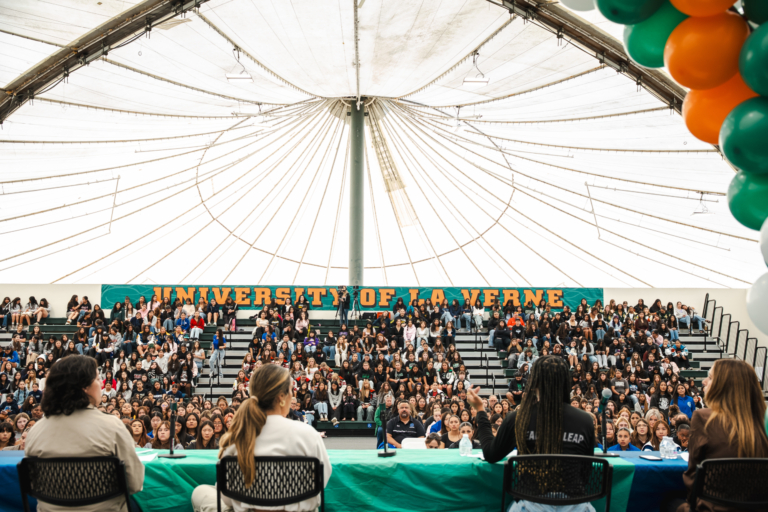Exploring Global Conservation
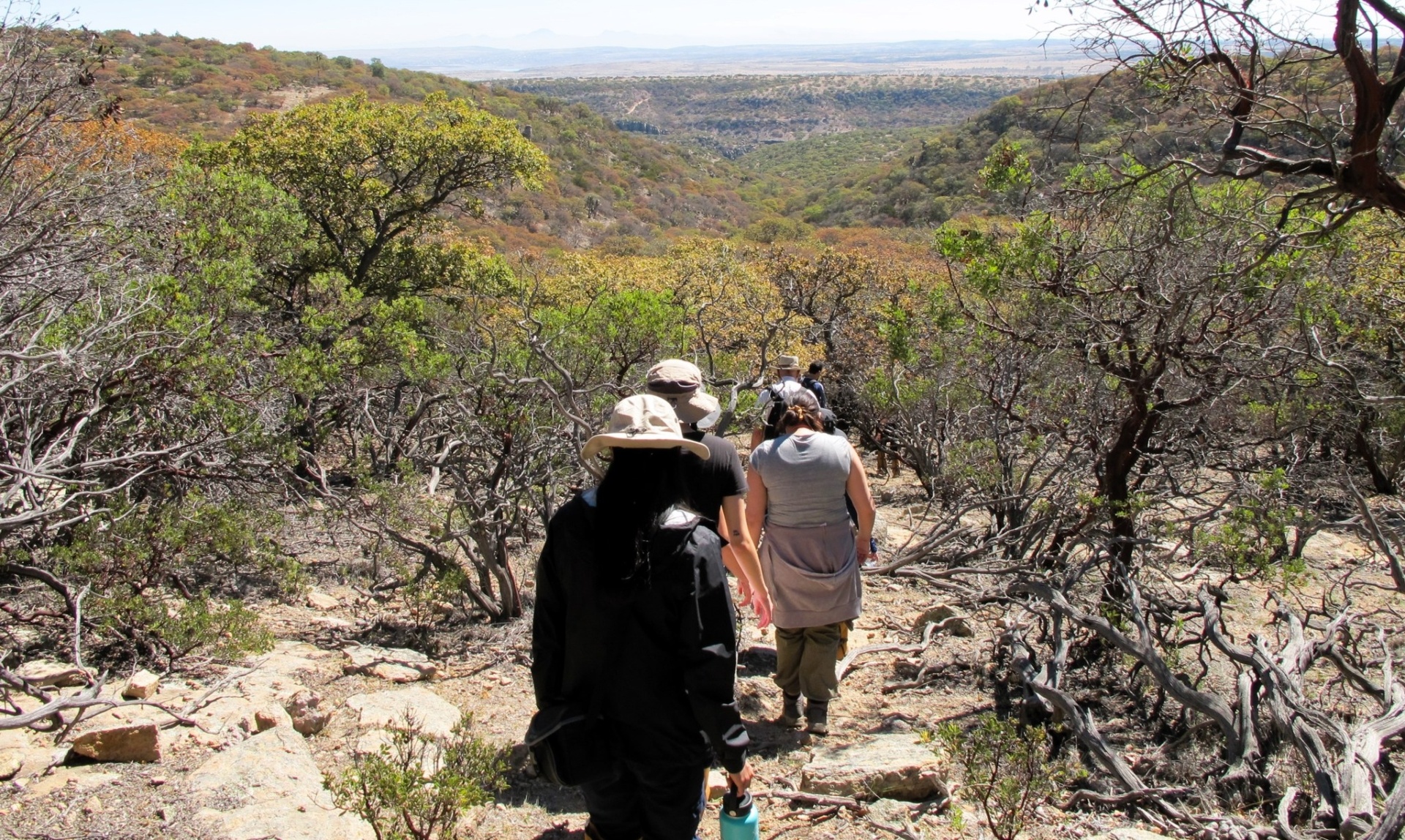
A Transformative Journey for Tropical Biology Students
This past spring, a group of tropical biology students embarked on a life-changing journey, exploring global forest conservation efforts and contributing to international solutions.
The new field research program not only allowed them to gain insights into community challenges but also provided an opportunity to conduct meaningful field studies at Peña del Gato Biological Research Station in Mexico’s western Sierra Madre. Students say the hands-on experience left a lasting impact.
“It really changed my perspective on the environment,” said recent graduate Andrea Maynard, one of seven students who participated in the program. “I plan to get my clinical labs license now. I want to explore this further.”
The semester-long pilot project was created by Biology Professor Victor Carmona, who aimed to enhance learning through cutting-edge research using drones. 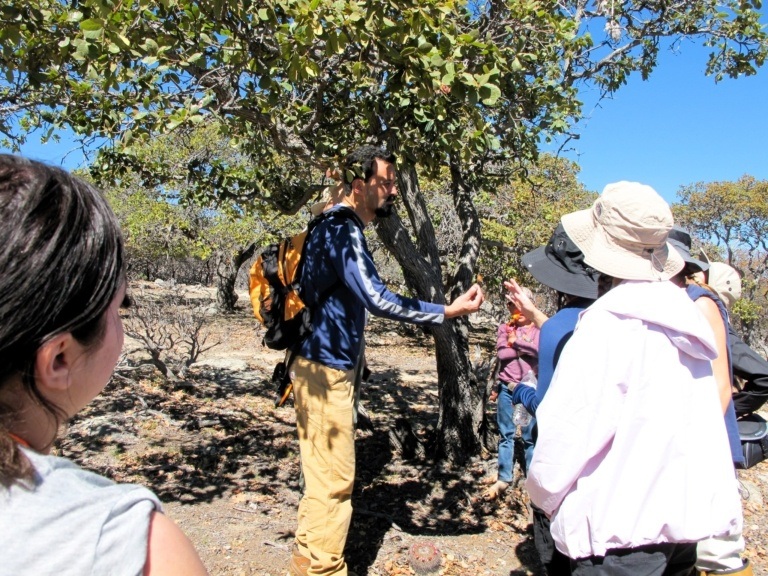 The initiative provided students with the experience of collecting data in the field and sharing their findings with global stakeholders.
The initiative provided students with the experience of collecting data in the field and sharing their findings with global stakeholders.
“Science is not a solo endeavor. Increasing the diversity of teams enriches the solutions and empowers conservation strategies,” said Carmona, who joined the university last year. “My hope is that students see they bring a wealth of knowledge and experiences that will revolutionize STEM (science, technology, engineering, mathematics) in the future.”
During the weeklong fieldwork, students used drones to document and study the local forest, which contributes to the global Carbon Market offset brokered by the Climate Action Reserve. Their projects explored the relationships between landscape ecology, underground carbon storage of oak trees, oak vitality, and oak life histories.
Upon returning, the students analyzed their data and presented their findings to peers and the ULV community during a research fair. 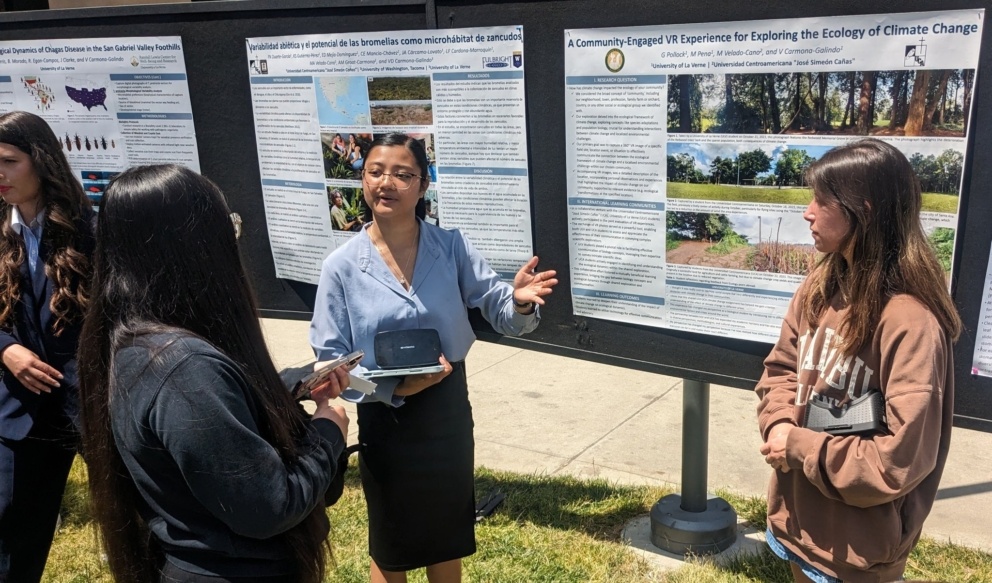 They discovered better methods for determining carbon offsets—funds allocated to projects like reforestation that lower atmospheric emissions—and identified factors that could decrease tree mortality rates to ensure successful reforestation efforts.
They discovered better methods for determining carbon offsets—funds allocated to projects like reforestation that lower atmospheric emissions—and identified factors that could decrease tree mortality rates to ensure successful reforestation efforts.
At the end of the semester, they shared their research with partner stakeholders and collaborators from the Climate Action Reserve in Spain, the Mexican State Government of Aguascalientes, Peña del Gato Biological Station, Universidad Autónoma de Aguascalientes, University of Washington-Tacoma, and Lawrence Berkeley National Laboratory.
Carmona hopes to co-author a scientific paper with the students based on their findings, which he believes could ultimately help shape conservation policy strategies in carbon credit markets.
“The collaboration and insights gained through this program have the potential to make a significant impact on conservation efforts globally,” he remarked.
